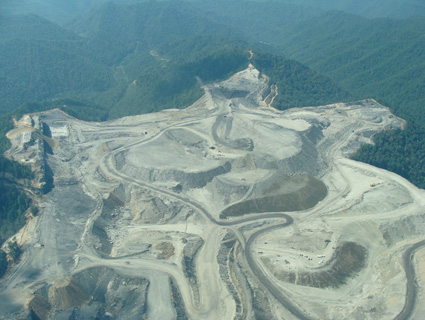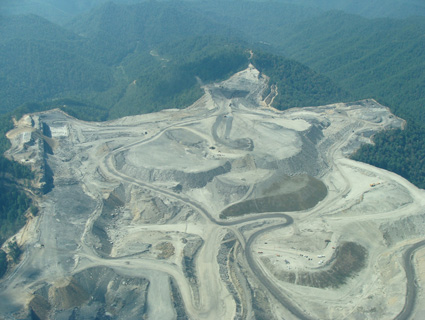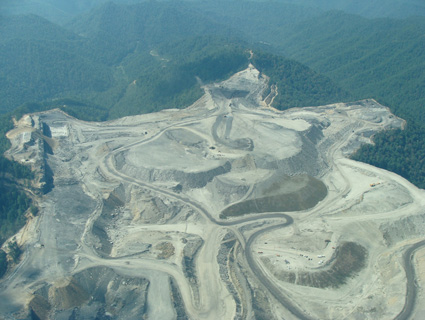
<a href="http://www.flickr.com/photos/nrdc_media/2964379829/">nrdc_media</a>/Flickr
Three quarters of likely 2012 voters who come from the “heart of Appalachia” support strengthening the Clean Water Act to protect waterways and lakes from the hazards of mountaintop removal mining, according to a new survey sponsored by a trio of environmental groups. And the supporters come from across the political spectrum—that number includes 71 percent of likely Republican voters and 67 percent of tea partiers, who aren’t usually so fond of government regulation.
Mountaintop removal mining involves blasting mountain peaks to access coal seams for extraction, which destroys ecosystems and poisons drinking water. On top of that, a recent study showed evidence that the practice causes birth defects. In response, coal industry lawyers suggested this was a result of inbreeding, not mining. (The survey found that these sort of attacks have failed to catch on.)
Asked if they supported mountaintop removal mining independent of the Clean Water Act, 38 percent of respondents said they opposed it, compared to 24 percent who supported it. When they were told that the practice contaminated local water sources, opposition jumped to 57 percent, including 51 percent of Republicans. Tea partiers initially favored the practice but changed their minds in a follow-up question explaining that mining waste “is disposed in nearby valleys and streams” (PDF).
The survey of 1,315 likely voters in Kentucky, Tennessee, Virginia, and West Virginia also found that the voters will be far less inclined to support politicians who continue to support mountaintop removal mining. If that’s true, officials should take heed: Thanks to Big Coal, the practice still enjoys some strong support in Appalachia, despite its resource-intensive nature and relatively low employment rates. The Democratic governors of Kentucky and West Virginia have defended the industry against environmentalists, and in Tennessee and Virginia, recent bills to ban mountaintop removal mining died in Senate committees.












